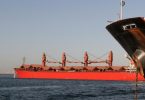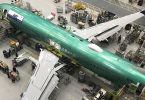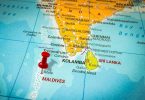Tewolde Gebremariam:
Yes, we are cash positive.
Peter Harbison:
Wow. That’s remarkable. For essentially a long haul international carrier.
Tewolde Gebremariam:
Hongu.
Peter Harbison:
Let’s talk about the Chinese market, which was a very, very big one for you before, of course. You’ve been in China for longer than almost anybody, certainly anybody in Africa. How’s that market going? Obviously they have very significant border controls from a passenger point of view. How are you surviving in that market?
Tewolde Gebremariam:
Very interesting question, Peter, because as you said we have been in China since 1973, so close to half a century. We’re among the very senior operators in China. We have also gained position ourselves in the right strategic position when China started to invest in Africa heavily, especially in infrastructure. So that has created a very significant passenger air cargo traffic between China and Africa. So, we have been right in that middle, and we have the largest market share between China and Africa.
Unfortunately, the COVID situation has devastated the passenger business. So, I would say we have almost lost entire passenger [inaudible 00:11:42] between China and Africa. Because right now we are operating once a week flight to Shanghai with a lot of restrictions. So, I would say the passenger business is gone. So, we will see when it recovers. But on the cardboard side, we are still very big, and it is a very, very significant market for us. We have daily dedicated freighters from Shanghai, and 10 dedicated freighter flights a week from Guangzhou, and more than daily from Hong Kong. Then Chengdu, [inaudible 00:12:24] and Wuhan now, where we start [inaudible 00:12:29] Wuhan, freighters, and Shenzhen. So, we are still a very, very large operator in China. Between China and Africa, China and South America, and China and Europe. So, it is a very strong market for us in cargo.
Peter Harbison:
That’s remarkable. You’re talking very large frequencies there. Probably 40 aircraft, 40 services a week? Something like that?
Tewolde Gebremariam:
Pedyo ne50.
Peter Harbison:
50, yeah. Yeah. That’s remarkable. What’s being carried on these services? This is presumably mostly out of China, but what else are you carrying on the freighters and the converted 777?
Tewolde Gebremariam:
Many industrial products, industrial goods, machineries, medical supplies, medical equipment, mobile phones, batteries for mobile phones, and electronic goods of course. IT equipments and so on. Also, from Europe, European exports with China, and from China to Europe also, Chinese exports. So, it’s a triangular operation, Africa, Europe, China, then Africa.
Peter Harbison:
So out of you’re carrying freight fresh food up to Europe?
Tewolde Gebremariam:
[crosstalk 00:13:54] about 40 flights a week from ATIS, three hubs. Then from [inaudible 00:14:07] the airplanes continue either to South America and North America, because We do also business for Inditex, you know the parent company of Zara. So, we have dedicated freighters for them operating to North America, Mexico, Columbia and so on. Some of the flights also continue to China with European exports, and then some back to Europe, some back to ATIS. So, it’s a triangular operation.
Peter Harbison:
It really is a remarkable success story in the middle of the gloom. It’s obviously very creative, constantly on your toes. In this process, Tewolde, is the Africa Continental Free Trade Association, Free Trade Agreement, is that being helpful? Is that something functional, or is it really just a wall poster?
Tewolde Gebremariam:
Peter, as you know, we are one of the drivers of the SEFDA. I don’t know if you have heard in the news, in the media, that on January 1st, we partnered with the African Union to start the first free trade goods moving from [inaudible 00:15:33], now it is called Eswatini, to the rest of Africa as a show of commencement. So, it is a very huge, significant milestone, and it has been ratified by most African countries. It has been officially launched, and we are very optimistic about it. So hopefully it will improve the inter-Africa trade, because right now the inter-Africa trade is in very, very low volume. Because out of the total trade between Africa and the rest of the world, only 16% is within Africa. So, 84% is with the rest of the world, with China, Europe, and so on.
So, when you compare that with Europe, and I always compare the African Union with the European Union because they are the same aged institutions. They were started late fifties, early sixties. So, the European Union has achieved a lot as compared to the African Union, which is very lagging behind. So, in Europe now, 60% of trade is within Europe, six-zero. But here it’s only one-six, 16. So you can compare how much we are lagging behind. But African countries have a lot to trade among themselves. Some of them are agricultural exporters. Some of them have slightly better industrial exports like South Africa, Nigeria, and so on. Egypt and so on. But then inter-Africa trade is very low. So, the SEFDA is going to change that. But huge and daunting challenges ahead of us, because then tax barriers are challenging. So, I hope African countries will face those challenges and make progress. That is the hope of everybody in the continent.
And Ethiopian Airlines, as I said, we are one of the drivers, and we are actively participating there. And we think that trade will generate traffic, both in cargo and passenger, within Africa. We are still the largest network within Africa. I think right now we have about 23% market share within Africa. So, we see quite a bright future, especially after the coronavirus recovery.






















